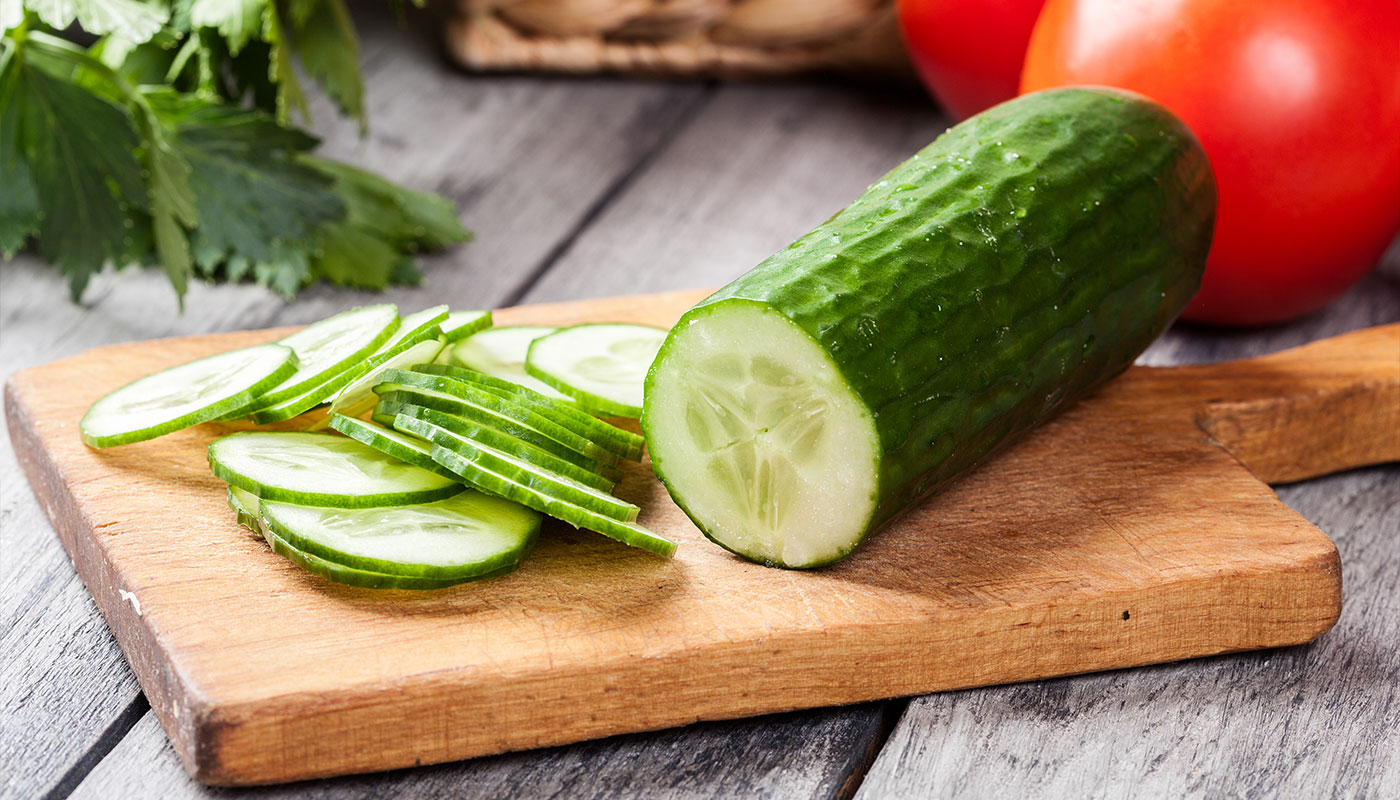Properties of cucumber
Discover the properties of cucumber. Rich in nutrients, hydrating and ideal for eating in salads, chilled soups and a multitude of dishes during the summer.
fresh food
Share

If there is one food that we particularly like to eat during the summer, its cucumber. It is already a basic salad crop of Mediterranean cookery, and it is thought to have originally been cultivated in India a whopping 3.000 or more years ago. Today, it is one of the main ingredients of pisto, gazpacho and many stir fries, and although it is in season during the summer, it can be eaten at practically any time of year. But that’s not all, because it also combines perfectly with foods such as yogurt, basil, avocado and fruit such as apples. But what vitamins does cucumber contain? Many, as we explain below.
With a high nutritional value and a balance of nutrients, the cucumber is a source of vitamin K and fibre and has very few calories, something which makes it a common ingredient in many diets. There is no doubt that, along with its taste and versatility, the properties of raw cucumber have made it a star in our kitchens.
Its vitamin K content contributes to the maintenance of healthy bones, and its high water content has a diuretic effect. It is also good for the skin. You have probably seen in many films how slices of this food are placed under the eyes, and that’s because cucumber reduces the dark circles and bags under these areas.

Most notable among the other properties of the cucumber, is its long preservation time: it can remain in good condition for various days if it is kept in the fridge. Because of all the above, we certainly should not forget to include it on our next shopping list.
Contraindications for cucumber
Of course, it is true that cucumber has positive properties and contraindications. In some cases, eating it may not be recommended for people who suffer from frequent flatulence.






